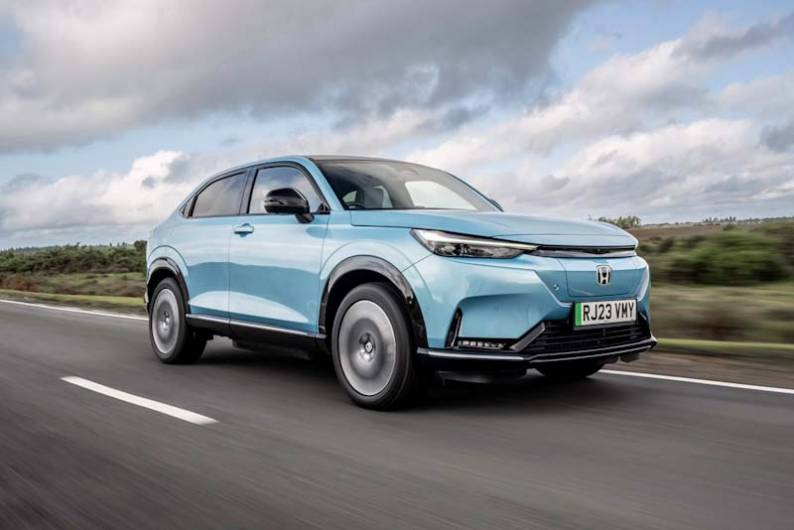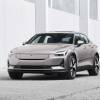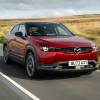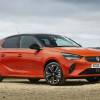
RAC sale – up to 33% off*
• Roadside cover from £5.29 a month†
• We get to most breakdowns in 60 mins or less
• Our patrols fix 4/5 breakdowns on the spot

The compact Honda e:Ny1 crossover is the brand's first higher volume EV. Jonathan Crouch takes a look.
Ten Second Review
Honda gets serious about EVs with this e:Ny1, a battery-powered compact crossover for small families. The unassuming looks and modest range and charging figures hide some tech cleverness here - in the cabin and in potential options for charge management. Honda's still a company of innovation. Thank goodness.
Background
Things are starting to get serious for car makers in the EV revolution. EV models can no longer be range-topping or fashion-orientated curiosities in their model line-up. Tough new UK government fleet emissions regulations mean that EVs must account for at least 22% of manufacturers sales by 2024 (and 80% by 2030). The 2024 target is one Honda needs to hit quickly. Virtually its whole range is electrified, but only one model - the Honda e - is a full-EV, and that sells in tiny numbers. Time to switch up a gear - with this car, the e:Ny1.
It's actually pronounced "e-en-why-one" and it's basically an electric small crossover equivalent to the brand's HR-V full-Hybrid. The two cars are positioned quite differently though and the e:Ny1 sits on its own bespoke 'e:N Architecture F' platform. It's the first of thirty EV models Honda's planning to launch between now and 2030. But is it likely to sell as the brand needs it to?. Let's take a look.
Driving Experience
Honda isn't marketing the e:Ny1 as a particularly sporty small SUV, but the brand wants this car to be a little more dynamically able than is the class norm. Hence the stiffness of the all-new 'e:N Architecture F' front-driven pure electric platform with its particularly low centre of gravity: and the fact that 47% of the body is fashioned from high-tensile steel in a bid to improve torsional rigidity.
There's only one powertrain offering, a similar drive system to that of rivals - a front axle-mounted 201bhp motor with 310Nm of torque and a modest-sounding 256 mile driving range from the 68.8kWh battery. All these figures significantly improve on those of the Honda e, particularly the range stat, being almost double that of the little 'e'. Don't expect frantic acceleration, but the e:Ny1 is rapid enough, making 62mph from rest in around 8 seconds.
Design and Build
There's every chance you might mistake the e:Ny1 for its Hybrid combustion-powered HR-V stablemate, rather than the completely new design it is. The looks, dimensions and token crossover vibe are all similar with both cars and, in the case of the e:Ny1, pretty conventional. Which is a touch disappointing after the adventurous and futuristic styling of the brand's very first EV, the Honda e. But that didn't sell very well and wasn't targeted at the kind of volumes being envisaged here. A flush front grille houses a centrally-mounted charging point and there's EV-specific badge treatment that sees the brand logo finished in white. The 4,390mm length is a few cms bigger than, say, a Peugeot e-2008. And there's a full-width light bar across the tailgate.
Honda's gone for a big Tesla-like portrait-orientated 15.1-inch touchscreen inside and a 10.25-inch digital instrument panel, so there's a satisfyingly tech-heavy cockpit feel, though physical buttons and switchgear still feature. The central screen is divided into three zones, the top for smartphone navigation systems, the middle for EV and audio functions and the bottom for ventilation and heating controls. A 2,610mm wheelbase length doesn't promise particularly generous levels of rear seat legroom and to access the back, you've to dodge a tapering C-pillar. Once inside at the back, space for rear folk is just about class competitive. The boot capacity is 346-litres, which is about 10% more space than you'd get in an HR-V and almost twice as big as the cargo area of a Honda e.
Market and Model
Expect a starting figure for e:Ny1 ownership of around £45,000, but that'll probably be irrelevant to most likely owners who'll be acquiring the car under some sort of PCP finance scheme. The ambitious pricing is at least matched by high equipment levels, whether you go for base 'Elegance'-spec or, for just over £2,000 more, range-topping 'Advance'-spec. Across the line-up, inside, a 15.1-inch centre touchscreen with navigation and 'Apple CarPlay'/'Android Auto' smartphone-mirroring. And there's a 10.25-inch digital instrument panel, alloy wheels, auto headlamps and wipers and climate control. 'Advance'-spec adds synthetic leather upholstery, a panoramic glass roof, a hands-free powered tailgate, a premium audio system and a heated steering wheel.
Safety kit across the range runs to a Collision Mitigating Braking System, Lane Keeping Assist, Traffic Sign Recognition, Road Departure Mitigation, Lead Car Departure Notification, Adaptive Cruise Control and an Intelligent Speed Limiter which adapts to the limit signs you pass. With this car, Honda is also offering the latest version of its Honda+ smartphone app, which includes remote vehicle locking and unlocking, plus 'intelligent geofencing', which alerts an owner if the vehicle breaches a pre-set 'geofence' zone. Plus there's the ability to send journey information from the app to the car's navigation system.
Cost of Ownership
The price includes 5 Years Complimentary Servicing, 5 Year Guarantee and 5 Years UK + European Roadside Assistance. We gave you the EV driving range of this car earlier, rated at 256 miles. Honda reckons more than that isn't particularly necessary for the target market, who they think will want the car mainly for local journeys. The brand hasn't pushed the boat out in developing a high charging speed either. The e:Ny1's platform and 68.8kWh battery can accept a maximum DC charging speed that's limited to 78kW. At a public rapid charger, that means that it will take this Honda 45 minutes to charge from 10 to 80% capacity and the brand says that at such a charging station, you can add 62 miles of charge in 11 minutes. Subtle lighting, hidden beneath the leading edge of the bonnet, sweeps from right to left indicating charging. It will flash if there's a charging problem and then 'wink' goodbye to you when the cable is removed. All little details that potential customers will like.
But maybe not quite as much as the company's clever 'e:Progress' charge management system, technology the company says can save owners money while also helping to reduce their carbon footprint. It isn't going to be offered on this car from launch, but Honda aims to have it fitted within the next couple of years. The set-up is based around a bi-directional smart charging hub, which can monitor the current status of the electricity grid. If that grid has a surplus amount of energy, the hub will charge the car connected to it. Should the grid be in a power deficit, the hub will siphon power away from the car and either sell it back to the grid or use it for power in the building the charger's connected to. Honda says this intelligent charge management system will help to smooth out daily electricity power peaks and prevent black-outs from over-exerting the electricity grid. And the brand believes the system could save between £400 and £500 from its customers' annual energy bills; high mileage drivers might even potentially double that figure. The 'e:Progress' charge management system could also significantly reduce an e:Ny1 owner's carbon emissions, especially when if it is paired with an eco-orientated energy tariff.
Summary
This is certainly a more pragmatic kind of Honda EV. While a Honda e feels little more than a fashion bauble, the e:Ny1 is the kind of electric Honda you could actually countenance owning. Though we can't help feeling that for those committed to the brand and wanting a small crossover, right here, right now, the company's HR-V Hybrid might be a safer and more usable all-round choice.
You might not be immediately sold on this car's conservative looks, but Honda cabins are models of economic excellence and this one doesn't disappoint in that regard either. We'd like to have seen a faster charging speed and greater EV range, but you can bet Honda's working on that. In the meantime, the e:Ny1 has just enough of the brand's originality about it to merit a place on your shopping list if you're browsing in this segment.







